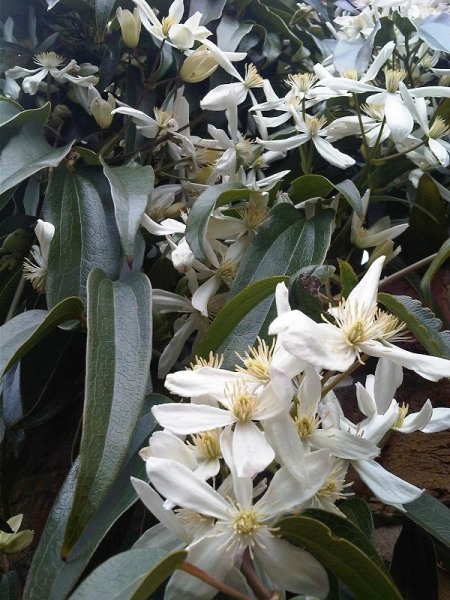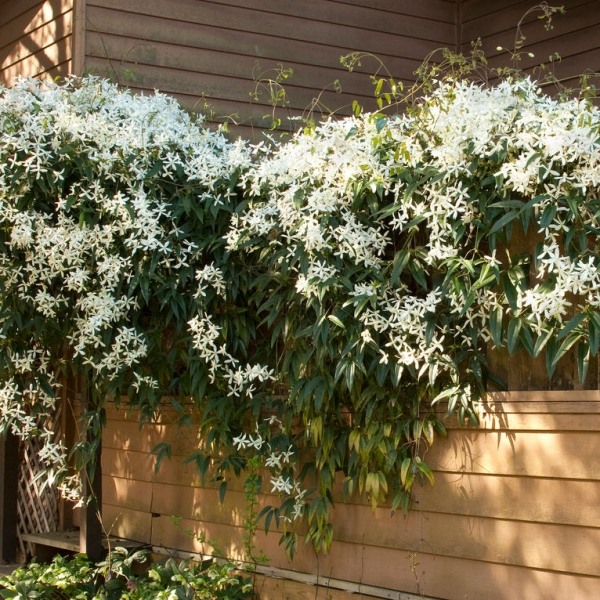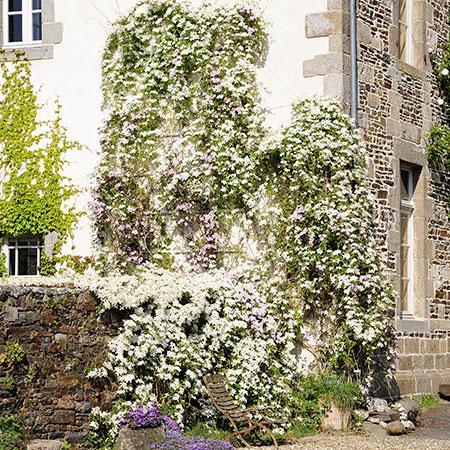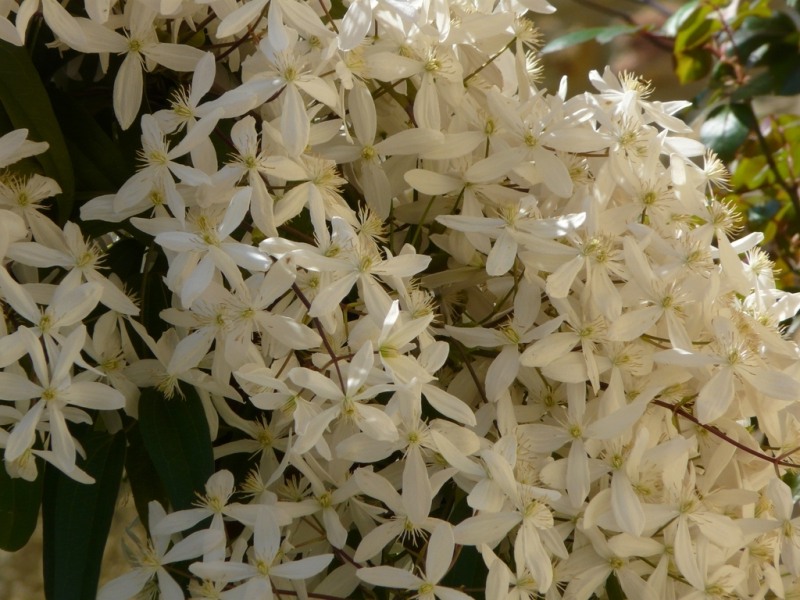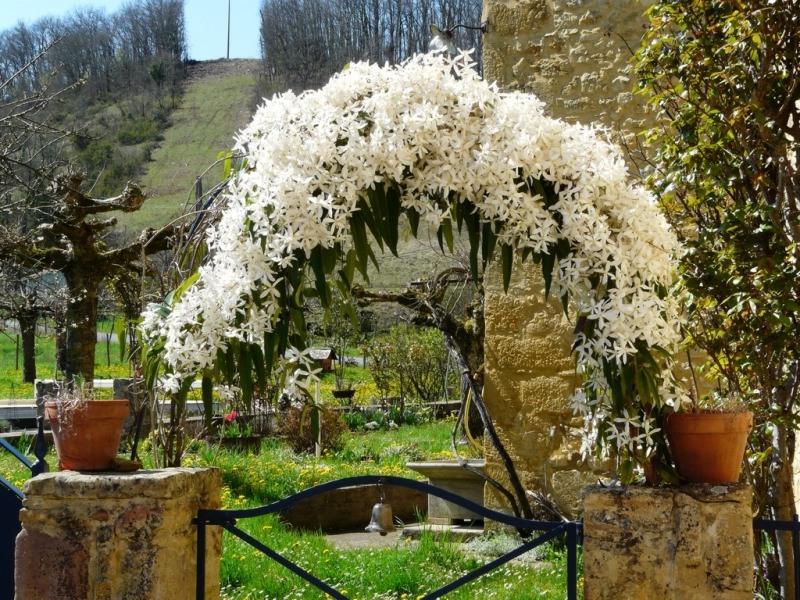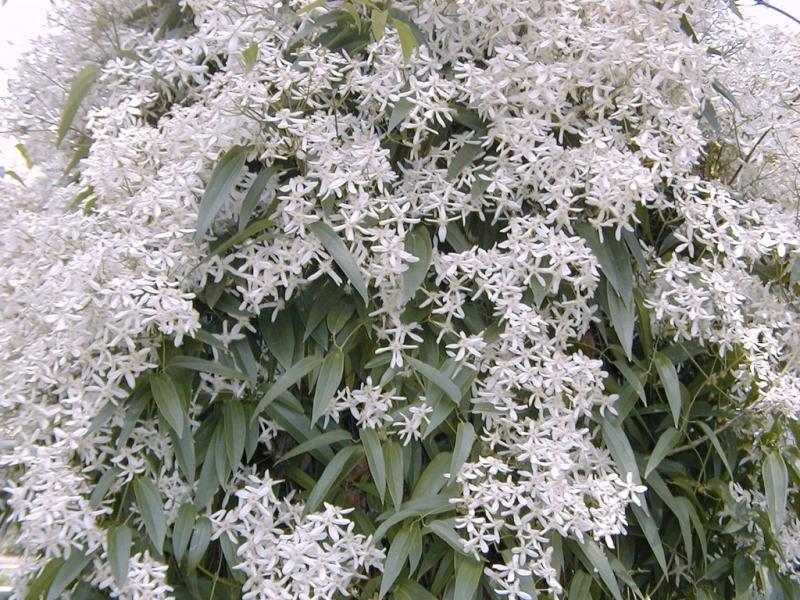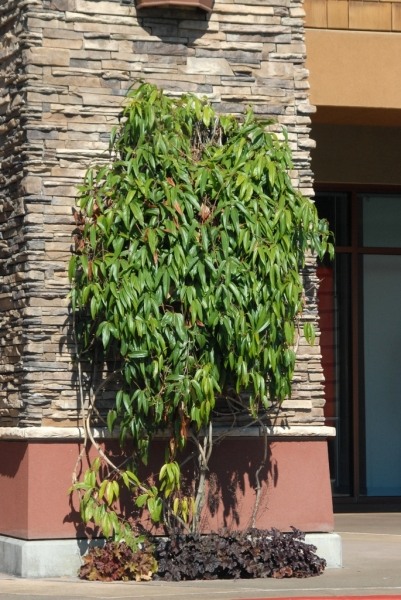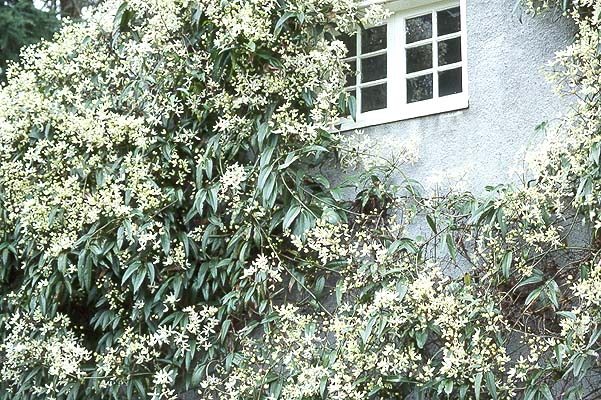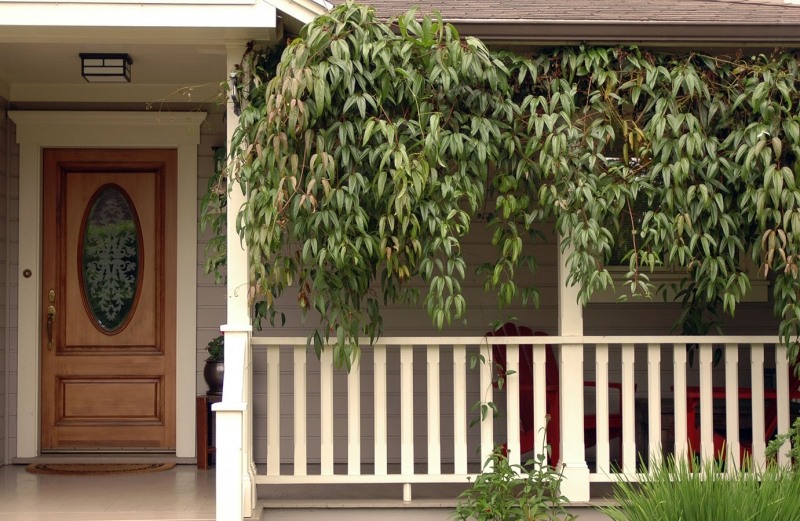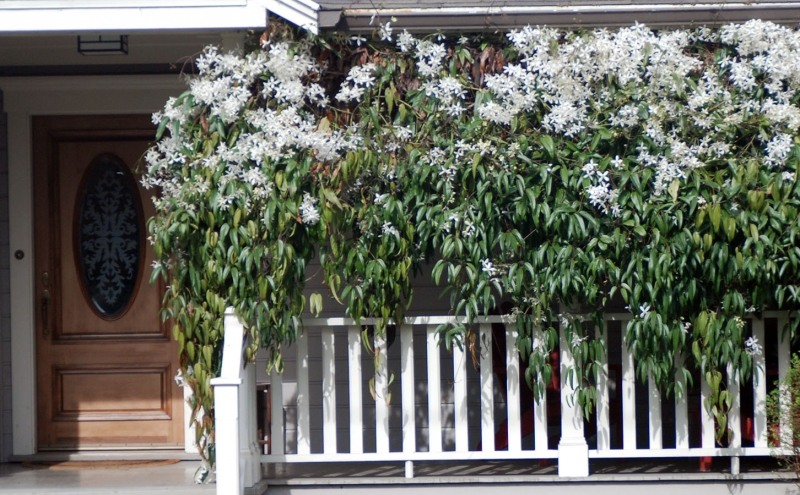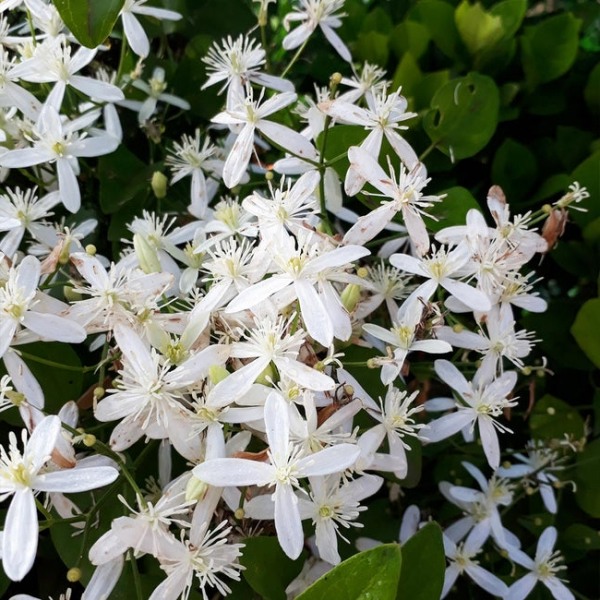Snowdrift Evergreen Clematis Armandii
| clematis | vine |
It is a evergreen, perennial, fragrant, flowering vine, see how the Snowdrift evergreen clematis armandii looks like in the garden and landscape.
Snowdrift Evergreen Clematis Armandii is suitable for growing in USDA hardiness zones: 7a, 7b, 8a, 8b, 9a, 9b. Other winter zone scales for planting this clematis are ANBG: 1, 2, 3; RHS: H6, H5, H4, H3; PHZ: 8a, 8b, 9a.
Clematis details
| Plant type | vine, flowering, fragrant, containers | ||||||||
| Life cycle | perennial, evergreen | ||||||||
| Sun needs | part shade, full sun, part sun | ||||||||
| Growth habit | climbing, twining | ||||||||
| Flowering period | early spring, late winter | ||||||||
| Height at maturity | 5 m | ||||||||
| Spread | 60 sm - 1 m | ||||||||
| Spacing | 1 m - 2 m apart to cover fences and walls | ||||||||
| Soil type | loamy, sandy, clay, silty | ||||||||
| Soil moist/drainage | well drained | ||||||||
| Soil PH | 6.0 - 7.0 (slightly acidic - neutral) | ||||||||
| Water needs | average, low when established | ||||||||
| Maintenance / care | low, average | ||||||||
| Resistance to | deer, drought, heat, insect, humidity | ||||||||
| Gardens types | container | ||||||||
Winter hardiness zones:
| |||||||||
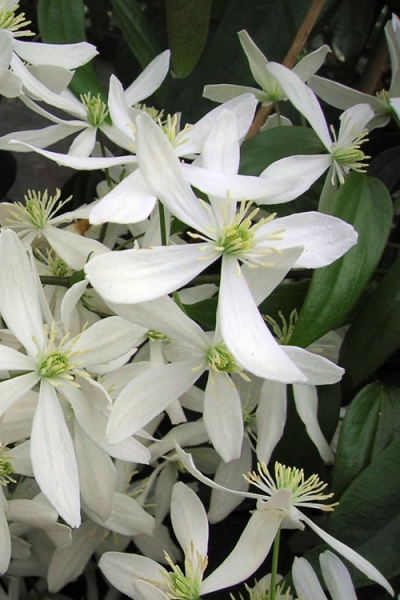 Snowdrift Evergreen Clematis (also called Clematis armandii, Armand clematis or evergreen clematis) is a flowering climbing plant of the genus Clematis.
Snowdrift Evergreen Clematis (also called Clematis armandii, Armand clematis or evergreen clematis) is a flowering climbing plant of the genus Clematis.
Like many members of that genus, it is prized by gardeners for its showy fragnant flowers. It is native to much of China and northern urma. The plant is a woody perennial. It attracts bees, butterflies, and hummingbirds. But clematis Armandii Snowdrift is toxic to dogs if eaten.
While most Clematis species are deciduous, which means they lose their foliage during the cool season, the Snowdrift is an evergreen! But the unique characteristics don't stop there. While most other Clematis flower in spring or summer, the wonderfully fragrant, star shaped, pure white flowers of Snowdrift are borne in profusion mid to late winter and continue through early spring.
While most clematis have small leaves, the elongated leaves of Snowdrift are very large and lustrous, providing a tropical effect in the garden.
The most desirable season for planting Clematis armandii is spring, but it can also be done in fall if winter is mild in your area. The golden rule with Clematis armandii is that the foot of the plant should stay in the shade while the head basks in the sun.
Once properly settled in, Clematis armandii requires very little care.
Since the armandii Clematis blooms quite early in the year, pruning can take place at the end of the blooming. Pruning serves to increase foliage density and enhance flowering in the following season.
The more clematis is pruned, the more it bears flowers! Perform in March or April depending on the blooming:
• cut back stems that have born flowers by about 20 inches (50 cm).
• cut back dead wood and the weakest stems completely.
Clematis Armandii can take severe pruning in stride, even if you hard prune it to a stump, it will sprout back new stems.
Snowdrift Evergreen Clematis Armandii @ wikipedia.
Snowdrift Evergreen Clematis Armandii in the landscape and gardening
Also clematis species
Also honeysuckle species
Also grape species
Also hydrangea species
Also jasmine species
Also vine species
| 1 | Clematis is toxic to dogs, cats, horses |
